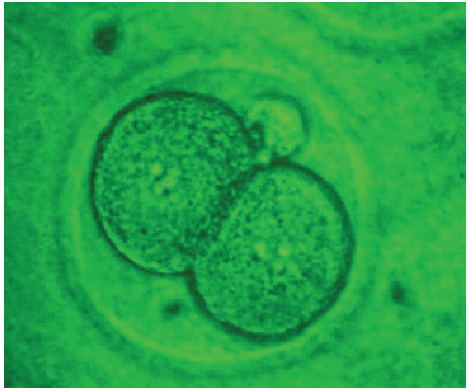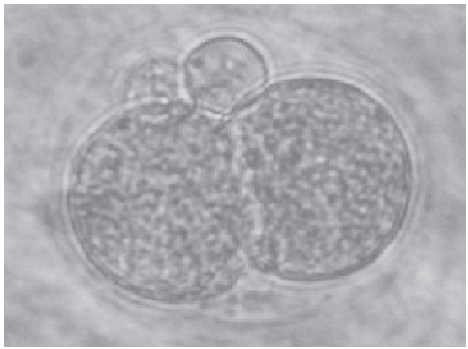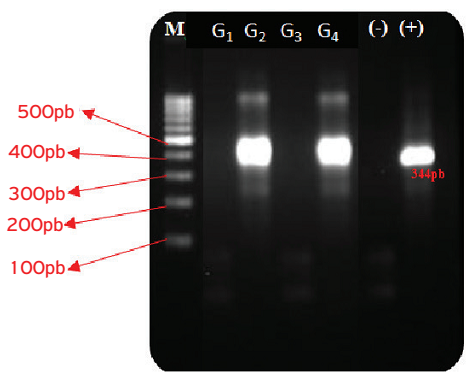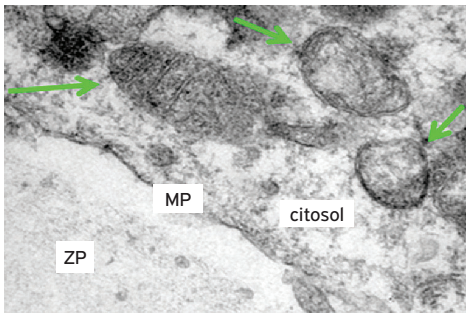ABSTRACT
The aim of this study was to evaluate the reduction of viral replication (Colorado BoHV-1) in murine embryos after the treatment of ethanol extract of Punica granatum peel (PgEE). Swiss female mice aged 6 to 8 weeks were superovulated with 0.2 mL of the 5 UI hormones (eCG and hCG) and mated with males of the same age. After 18 hours, the females were euthanized in a CO2 chamber, and through the opening in the peritoneum, zygotes were collected and washed with 0.5% pronase solution. The zygotes were divided into four groups: G1 (control), G2 (exposed to the virus Colorado BoHV -1 to 108 TCID50/mL), G3 (exposed to PgEE) and G4 (exposed to the virus and to PgEE). The groups were maintained at 37.5ºC in TCM199 (100 mL) with 10% fetal bovine serum in an incubator at 5% CO2 and 95% humidity. After 24 h, we analyzed the cleavage rate (Fisher's exact test; p<0.05), the morphology (by light microscopy), the nested-PCR and the titration of embryos in co-culture with MDBK cells after over 72 h of treatment (Mann-Whitney test; p<0.05) and transmission electron microscopy (TEM). The murine embryos treated with PgEE showed satisfactory results: no morphological changes, cleavage rate similar to controls, despite the detection of the presence of virus by nested PCR and TEM, there was a decrease of the viral titer after the treatment with this extract, which suggests interference of this treatment in the viral cycle BoHV-1 Colorado without altering the embryo development.
KEYWORDS:
ethanol extract; pomegranate; murine embryos; BoHV-1; reduction of viral replication

 Thumbnail
Thumbnail
 Thumbnail
Thumbnail
 Thumbnail
Thumbnail
 Thumbnail
Thumbnail
 Thumbnail
Thumbnail
 Thumbnail
Thumbnail
 Thumbnail
Thumbnail
 Thumbnail
Thumbnail
 Thumbnail
Thumbnail
 Thumbnail
Thumbnail
 Thumbnail
Thumbnail
 Thumbnail
Thumbnail
 Thumbnail
Thumbnail
 Thumbnail
Thumbnail
 Thumbnail
Thumbnail














